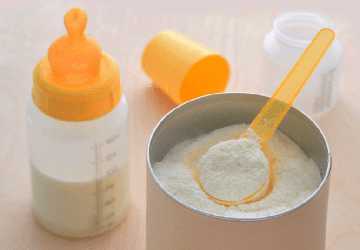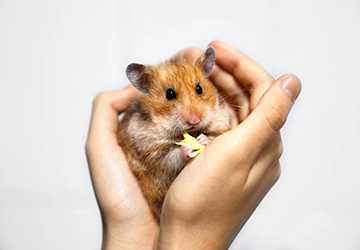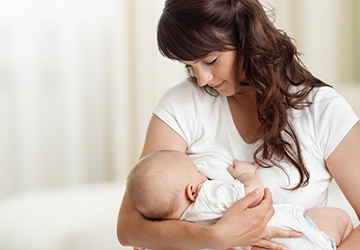Who Should Use Organic Baby Products?
In today's world, when environmental concerns and health awareness are unprecedented, many parents lean towards providing organic products to their babies. The key question arises: Who should choose organic food? This article explores the benefits of organic baby products, explains the differences between organic and non-organic baby products, and provides readers with guidance on choosing the most appropriate option for their baby.

Understanding organic baby products
Before we discuss who benefits most from these products, it's essential to understand their unique properties. Organic baby products are made from materials that do not contain synthetic pesticides, chemical fertilizers, or genetically modified organisms (GMOs). This approach promotes a healthier ecosystem and ensures that items that come into contact with the baby's skin are free of potentially harmful chemicals.
Benefits of organic baby products
● Safety first: The most significant advantage of organic baby products is their inherent safety. The absence of harmful chemicals significantly reduces the likelihood of baby skin irritation or allergic reactions.
● Eco-Friendly Choices: Choosing organic farming is evidence supporting sustainable farming practices that have a minor impact on the environment compared to conventional farming methods.
● Improve long-term health: Reducing exposure to chemicals early on can improve health prospects.
The benefits of organic baby products highlight why parents increasingly prefer organic alternatives.
Ideal for organic products
The decision to go organic is a personal matter, but certain target groups may find these products particularly attractive:
Health-conscious parents:
People aware of potential chemical risks may be tempted to use organic products to reduce health risks.
Sustainability advocates:
Families concerned about environmental sustainability may find that organic baby products align with their principles.
Babies with sensitive skin:
The gentle nature of organic products makes them the best choice for babies prone to allergies or having poor skin conditions.
Families with a history of allergies:
Babies born into families with known allergies, respiratory problems, or other sensitivities can greatly benefit from organic products. These items are free of harsh chemicals and irritants and help reduce your baby's exposure to allergens, potentially preventing allergic reactions.
Supporters of the Holistic Lifestyle for New Parents:
Parents new to raising children and adopting a holistic lifestyle based on natural and organic practices are prepared to incorporate these principles into their parenting. Organic baby products without artificial additives align with a holistic lifestyle and ensure that the baby's environment remains unpolluted and toxin-free.
Environmentally conscious consumers:
Consumers concerned about their environmental footprint may choose organic products for young children. These people recognize that the environmental friendliness and reduced carbon emissions from organic farming help protect the environment for future generations.
Informed consumers demand clarity:
Consumers who are well-informed, knowledgeable, and actively seek out product sources, ingredients, and production methods are likely to prefer organic options. They appreciate the strict standards for organic products, from the absence of pesticides to using non-toxic processes in production.
Households living in cities:
Families in urban areas often face higher pollution levels and toxins and may choose organic baby products to respond to these environmental threats. Organic clothing, sleep products and skin care products provide a cleaner, safer environment for children in the hustle and bustle of the city.
Animal rights advocate:
Ethical considerations for organic products often include animal welfare. Parents concerned about the ethical treatment of animals in producing baby products such as wool or corn may be tempted to choose organic products that ensure the humane treatment of animals.
Selected Price Sensitive Households:
Although organic products are more expensive, they may still be ideal for families who are conscious about spending. They can strategically select essential organic items that will significantly impact their children, such as supplements, skincare, or sleep needs, balancing budget constraints and a desire for organic excellence.

Families considering cultural or dietary preferences:
Families who follow certain cultural or dietary lifestyles, such as veganism or vegetarianism, may find organic baby products particularly appealing. The products often meet their ethical and nutritional standards, ensuring even the youngest family members understand these values. For example, organic baby food and personal care products are developed with a focus on cruelty-free and plant-based ingredients, which resonates with families committed to this lifestyle.
Tech-Savvy Millennial Parents:
Millennial parents, known for relying on technology to make informed decisions, may also be interested in organic baby products. This demographic values the ability to quickly research product background read reviews, and understand the benefits of organic products over non-organic products. They look for products that guarantee security and sustainability and have a transparent digital footprint they can trust.
Organic and non-organic baby products
The main differences between organic and non-organic baby products are the manufacturing process and possible health effects. Non-organic items may contain pesticide residues or synthetic compounds, which some parents may want to avoid.
Make the best choice for your child
Personal priorities, including health considerations, environmental factors and financial constraints, can influence the decision to use organic baby products. Here are a few strategies for intelligent decision-making:
● Do your research: Research the certifications and standards for organic products in your area.
● Allocate your budget wisely: Since organic products can be more expensive, prioritize your most important items, such as skin care products or clothing.
● Check the labels: Familiarize yourself with the ingredients and materials used in the products you choose for your children.
Conclusion
The advantages of organic baby products make them attractive to many families. When parents understand who should choose organic items and the differences between organic and non-organic baby products, they can make decisions that reflect their values and priorities. Whether for health reasons, environmental concerns, or a preference for natural materials, organic baby products are a viable and often beneficial option for raising young children.
Remember, your child's most important decisions are those characterized by love and consideration for his well-being and future.







